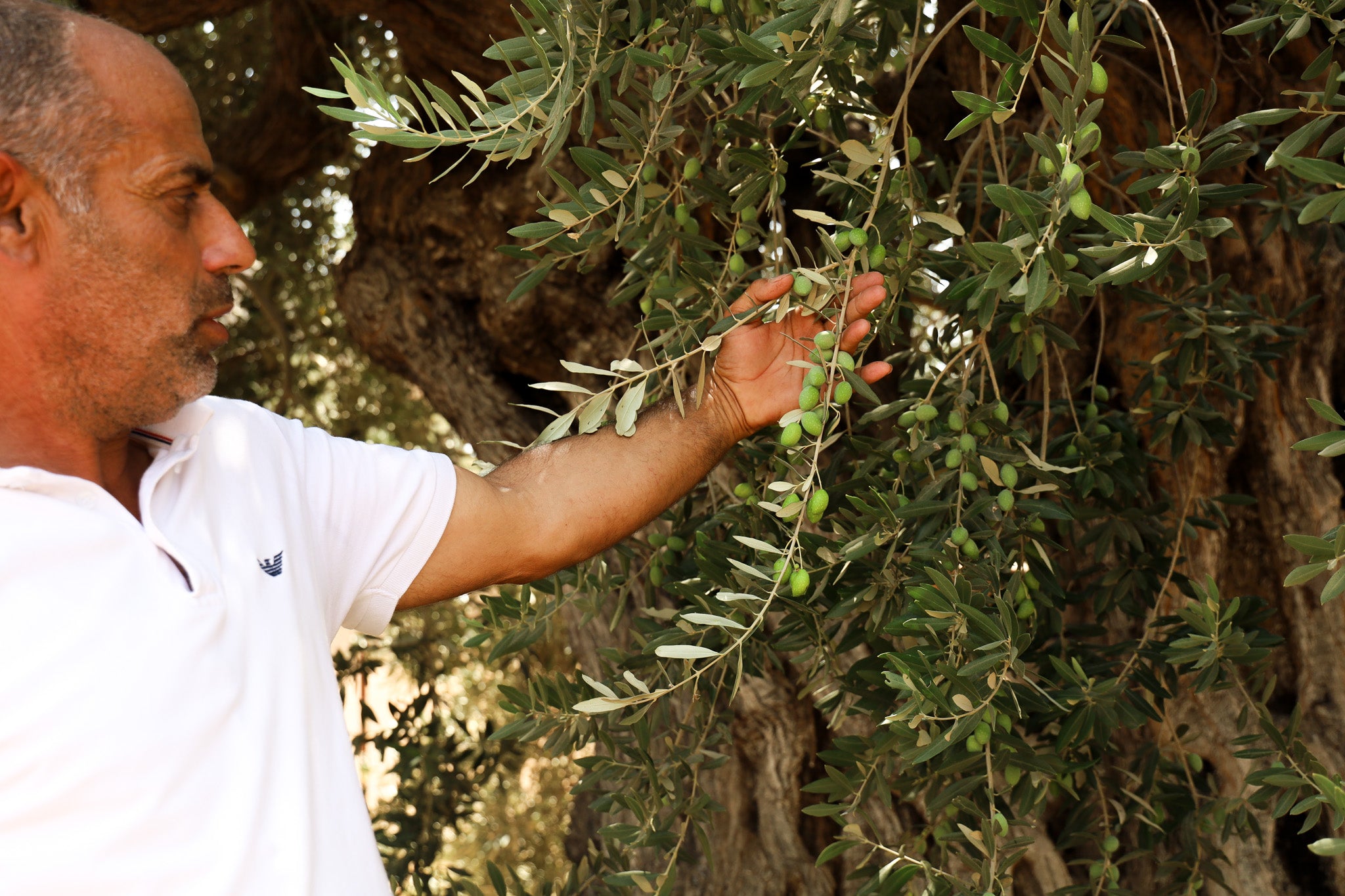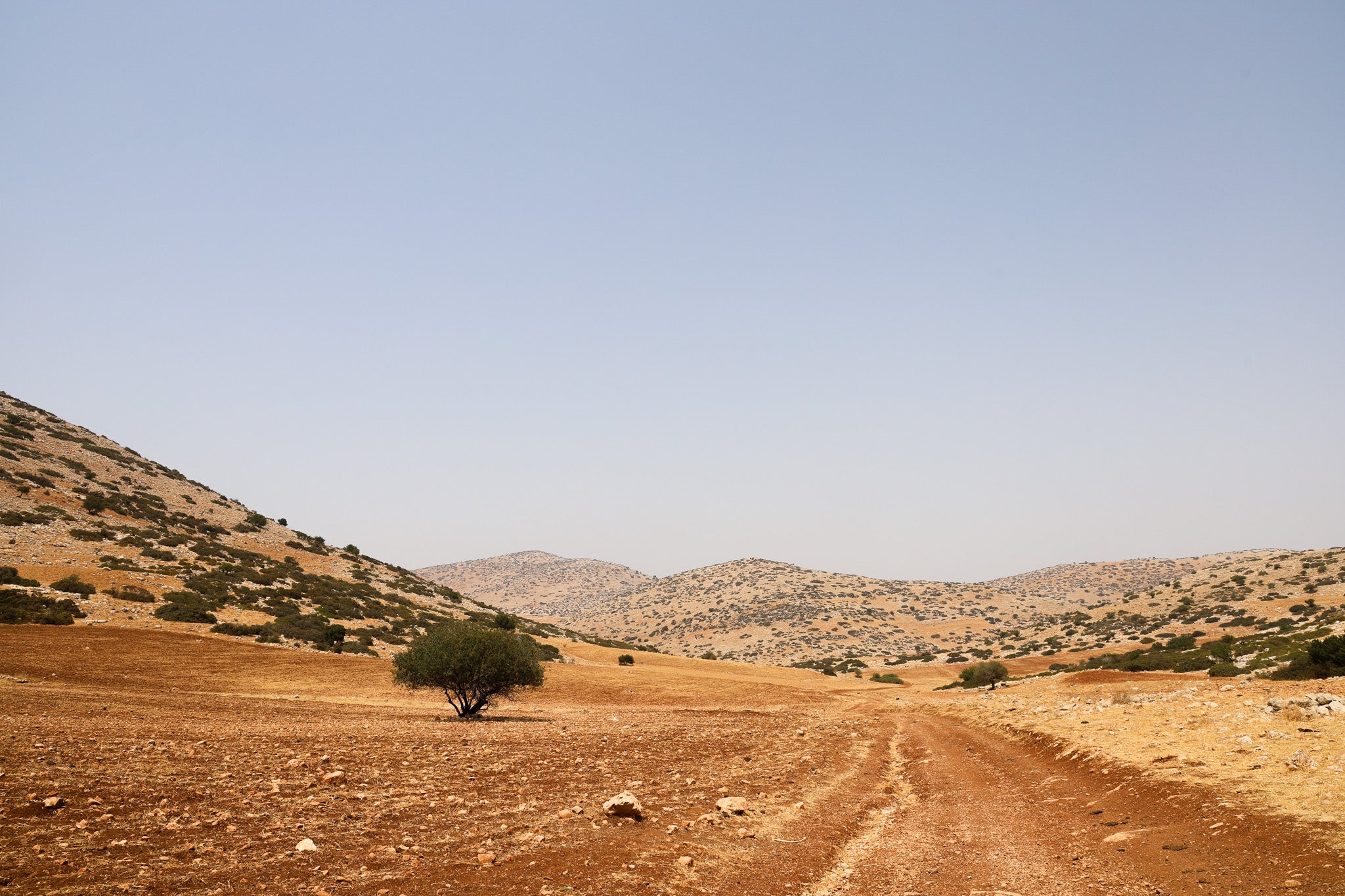In the past month we visited Al Aghwar, the Palestinian Valleys in the northern Jordan Valley. We visited Tubas, a governorate that has long been known as the breadbasket of Palestine. Generations remember it as a place of abundance - for centuries, families there grew wheat, citrus, and vegetables, and herded their flocks along the river. People from all over Palestine would come to Tubas to buy produce, because its soil was known for its potency. Its land was so potent that it symbolized not only sustenance but also resilience and prosperity.
But today, that story of prosperity has become a story of disruption and control. Since 1967, the valley has been under Israeli military occupation. Since then, water, the most vital resource, has become a tool of control. Today, Israel controls nearly 90% of the West Bank’s water. While settlers enjoy irrigated farms and greenhouses, Palestinian fields wither just meters away. From the very beginning, water has been weaponized as an instrument of colonization.
Land has been stolen, too. Farmers face constant settler attacks. Herds are killed or stolen. Fields are torched. Wells are demolished. Yet despite it all, Palestinians remain. Families still plant olive trees, figs, oranges, and palms. Shepherds still graze their flocks. Farmers raise native chickens. Even under systemic oppression, segregation, and the threat of dispossession, they return each season to sow a seed in soil that remembers their ancestors’ hands.

In our latest video from Al-Aghwar, we meet Raed Hamdan Ghori Daraghmeh, a farmer from Tayaseer, in the Tubas governorate. At 53, Raed has spent his life working the land just as his father and grandfather did before him. His voice carries both pride and grief as he stands among his olive and cactus trees, pointing to the traces of what has been lost.
“This tree is barely two years old,” he says, showing branches heavy with fruit. “The land, if you serve it, it will give back. If it costs you one liter of sweat, it will repay you with ten liters of its eyes, whether oil, figs, or anything else.”
But the well and water container that sustained his crops have been demolished or confiscated by the Israeli authorities. What remains are trees struggling without irrigation, lands left unplanted, and a farmer caught in a cycle of loss.
Occupation and the Politics of Water
Raed’s struggle with water reflects a wider picture of dispossession. The Jordan Valley is rich in water, but Palestinians rarely see it. Springs, aquifers, and the Jordan River itself have been placed under Israeli control. Palestinian access is severely restricted, while settlers drill deep wells and divert water into pipes and reservoirs that serve their farms and settlements.
In Tubas, Palestinian farmers are often limited to 30–40 liters of water per person per day, far below the World Health Organization’s recommended minimum of 100 liters. Settlers nearby enjoy three to four times that amount. Wells that once sustained whole villages are sealed off, pumps destroyed, and a cistern dug to collect rainwater may be bulldozed under the pretext of “illegal construction.”
This imbalance is not accidental. It is a deliberate policy. By controlling water, the primary source of life, the occupation forces Palestinians into dependency: dependency on expensive, limited supplies purchased from the Israeli water company, dependency on humanitarian aid to truck water into villages, and dependency on external seeds and fertilizers because traditional systems of self-sufficiency collapse when the water cycle is broken.
Raed recalls how his family once grew wheat that would sustain them year after year. Over time, local seed varieties were abandoned in favor of “high-yield” types promoted by settlers. These new seeds could not be replanted, forcing farmers into dependency. “Either way we lost,” Raed says, describing how not only wheat but also tomatoes, corn, and other crops must now be bought externally.
The cycle of self-sufficiency has been broken. What was once a closed circle of planting, saving, and replanting has been replaced by reliance on an external source of control.
This agricultural dependency mirrors the broader political situation: a people who once fed themselves from their land are now forced into market systems where occupation dictates the rules. Palestinian produce is blocked from reaching markets freely—trucks of fresh vegetables are held for hours at checkpoints until they spoil, olives confiscated under bureaucratic pretexts, and farmers denied access to their own land during harvest season. At the same time, subsidies and incentives are granted to settlers, who flood the markets with cheaper produce grown on confiscated land using stolen water.
The result is a bitter paradox: the breadbasket of Palestine is being hollowed out into an empty shell. Fields that once produced abundance are now barren or forced into producing crops for export under occupation’s terms, while Palestinian families buy back the very wheat and vegetables their land is capable of growing. Dependency replaces sovereignty, and the farmer who once held power in his hands now works under the constant shadow of dispossession.

Identity at a Cost
The occupation’s water regime has consequences that extend beyond the economic, it reshapes entire communities. Younger generations abandon farming because survival on dry land has become impossible, leaving behind decades of agricultural lineage. Families are forced to move to cities, severing ties with their ancestral villages. Women, often the custodians of traditional seed-saving and food practices, lose access to the spaces where their knowledge once flourished.
Even herding, once a mobile way of life that followed the rhythm of the seasons, is under siege. For centuries, shepherds moved their flocks across valleys and hills, relying on natural springs and shared grazing land that tied families to the land through both livelihood and tradition. Today, that rhythm is violently disrupted. Water is scarce, wells are sealed, and wide stretches of pasture are fenced off for settlement expansion or reclassified by the Israeli military as “firing zones.”
Shepherds who try to graze their sheep in these areas are met with harassment from soldiers or settlers. Entire flocks are confiscated on the spot, fines are imposed that exceed a family’s yearly income, and in some cases, livestock is slaughtered or stolen. What was once an open landscape of abundance is now fragmented by checkpoints, barbed wire, and military jeeps patrolling the hills.
This assault on mobility is not accidental; it is designed to push families off the land, to break the continuity of pastoral life that has sustained Palestinians for generations.
The geography itself has been reshaped into a tool of dispossession. Terraces, wells, and grazing paths are erased, while settlers cultivate green fields on stolen land just meters away. The shepherd’s horizon, once a symbol of freedom and resilience, has been turned into a patchwork of restrictions and dangers. In this way, the occupation does not simply control territory, it dismantles a culture, eroding ways of life that carry centuries of memory and identity.
And yet, Palestinians continue to resist not only through protest, but through cultivation. Every olive tree replanted after one is uprooted, every seed saved despite pressure to abandon it, every flock led out to graze despite military threats, is a form of defiance.
In Tubas, as in much of Palestine, the struggle is not only for survival but for dignity and continuity. The story of Raed is the story of Palestine. It is the story of a people rooted in land, whose breath and survival are tied to cultivation, and whose resilience insists on returning each season to sow again.
The valley tells a story of dispossession, yes. But mostly, it tells a story of love. Love for the land, for continuity, and for a homeland that will forever live in every Palestinian heart.
And now, in yours as well.


